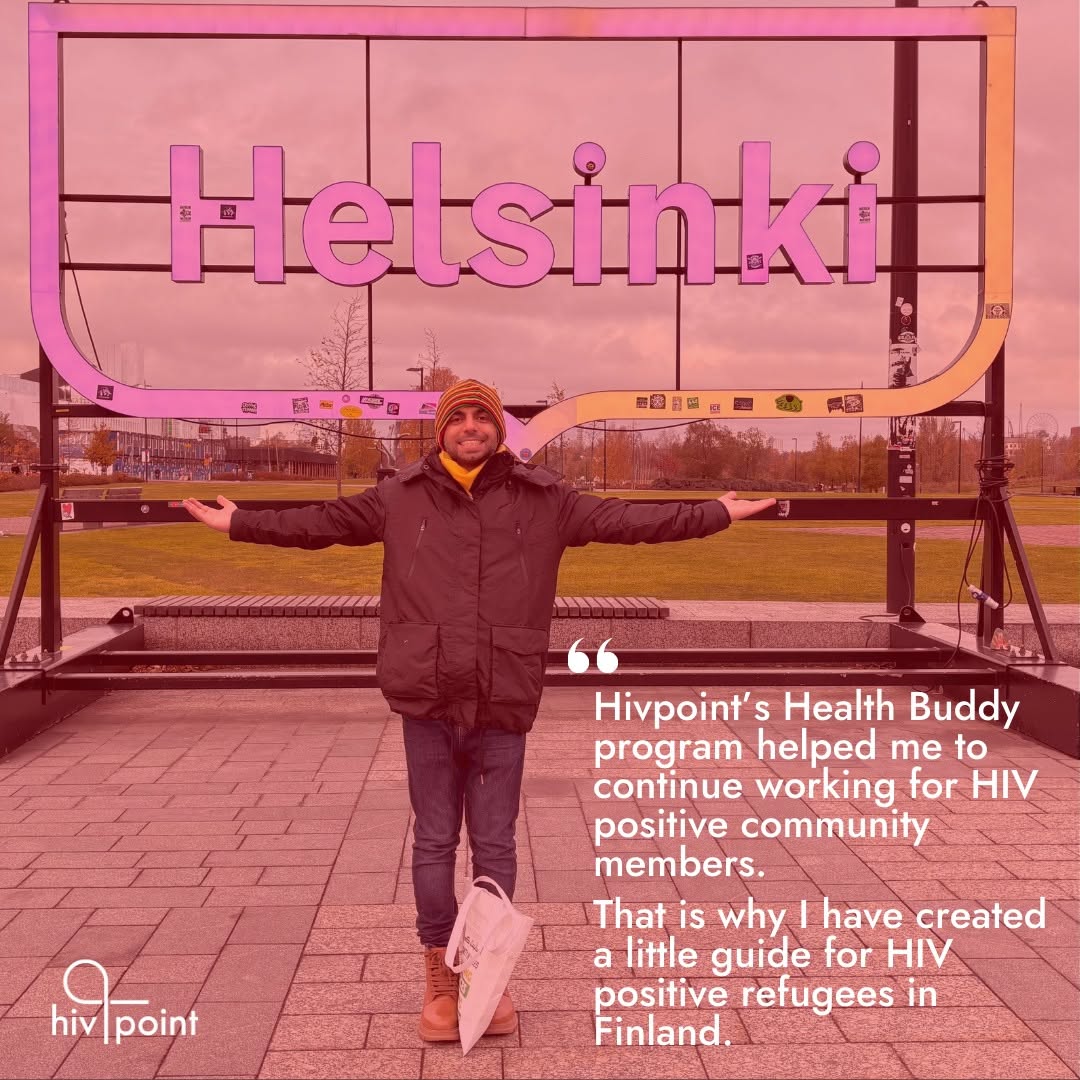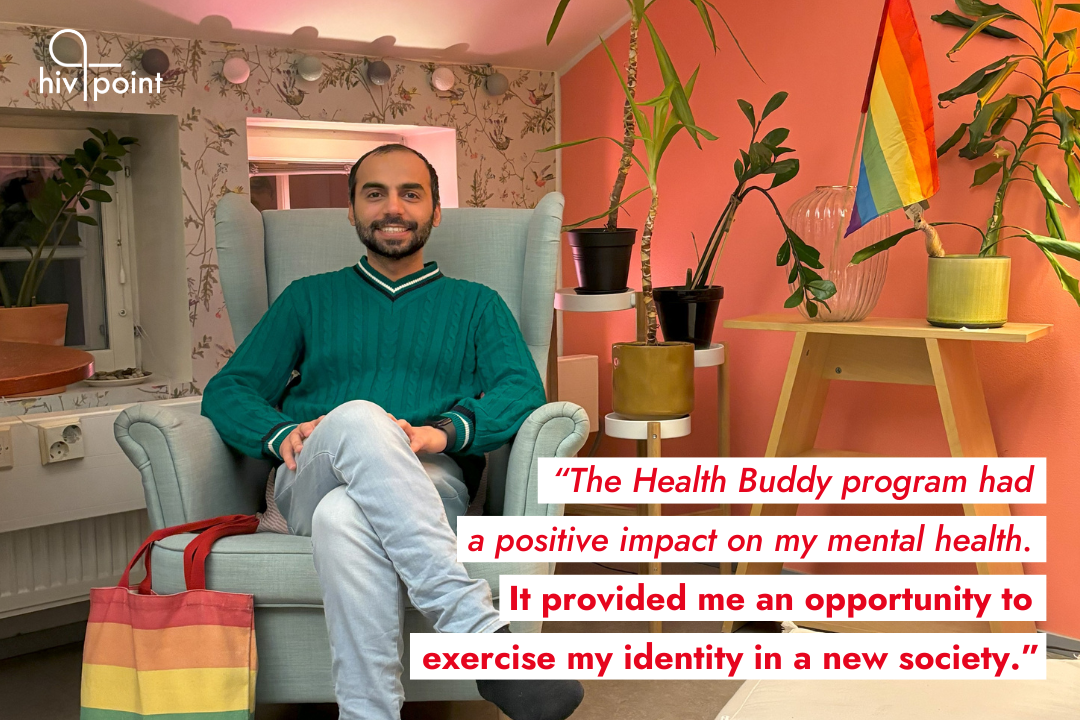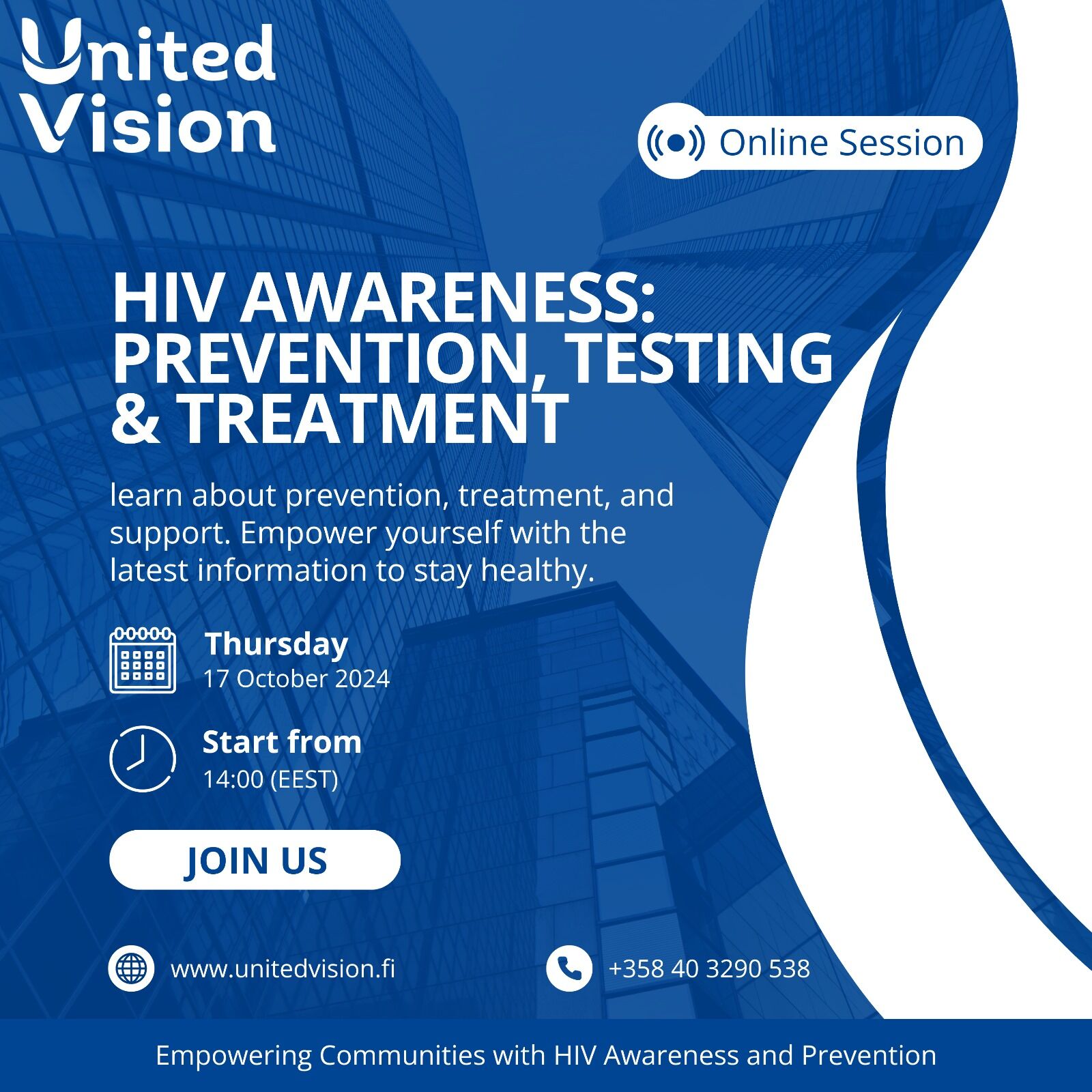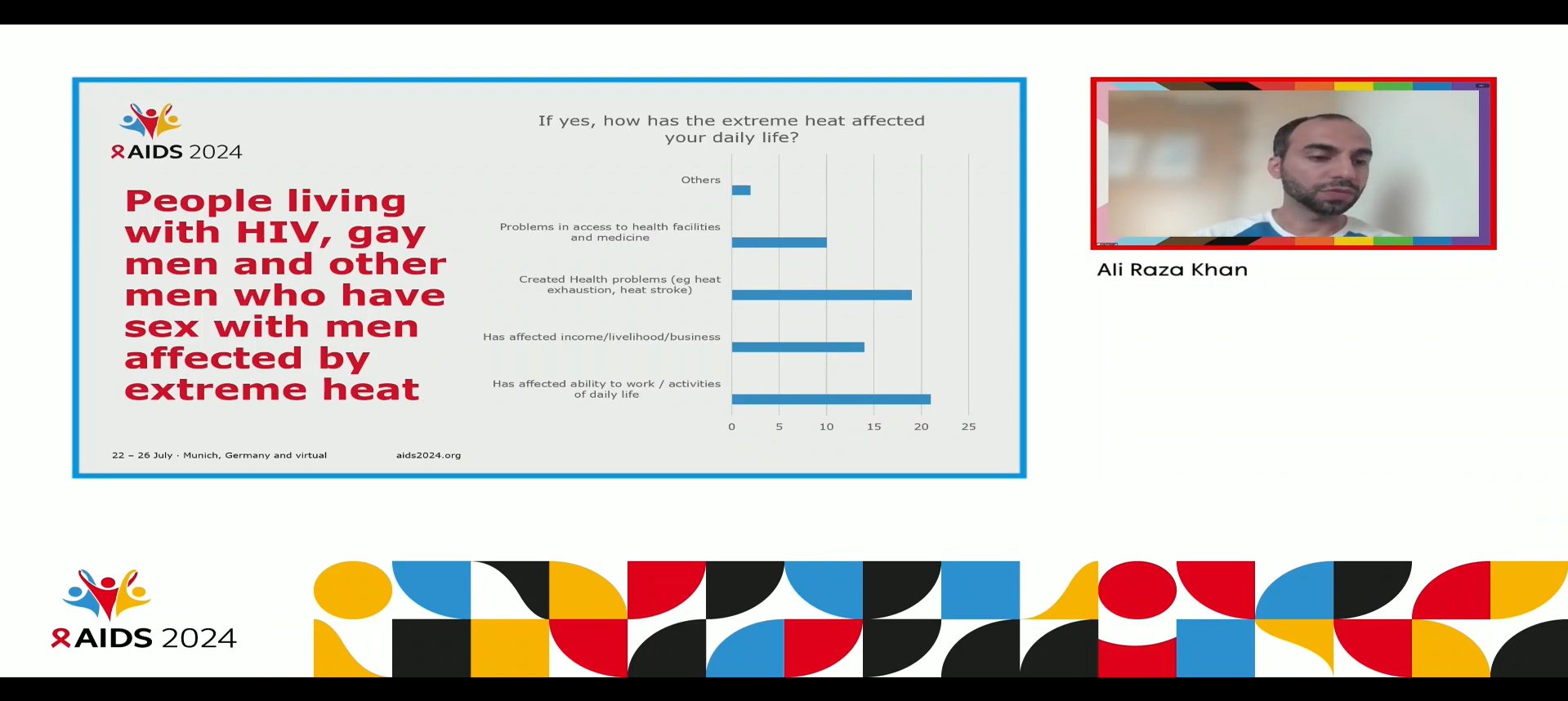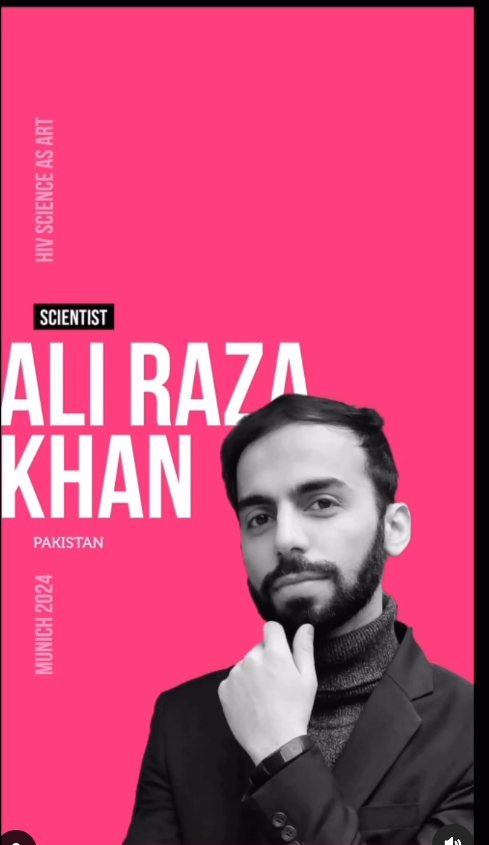Category: Health Advocasy : All About Health
-
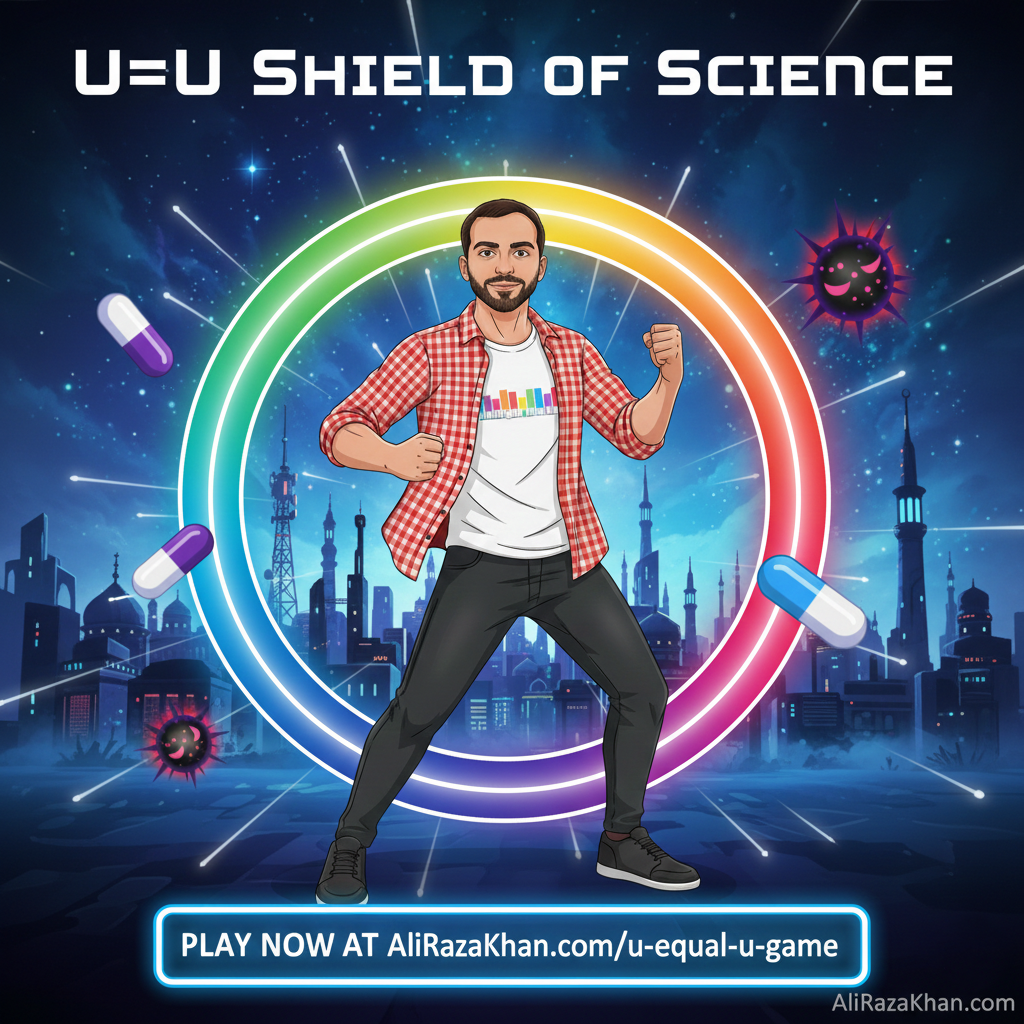
Play U=U Shield of Science: A New Interactive Artivism Experience by Ali Raza Khan
As a gay individual living with HIV and a dedicated activist in Pakistan, my work has always sat at the intersection of research, activism, and art. Today, I am proud to announce the latest piece of my digital “Artivism” portfolio: The U=U Shield of Science Game. In a country where HIV stigma is often fueled…
-
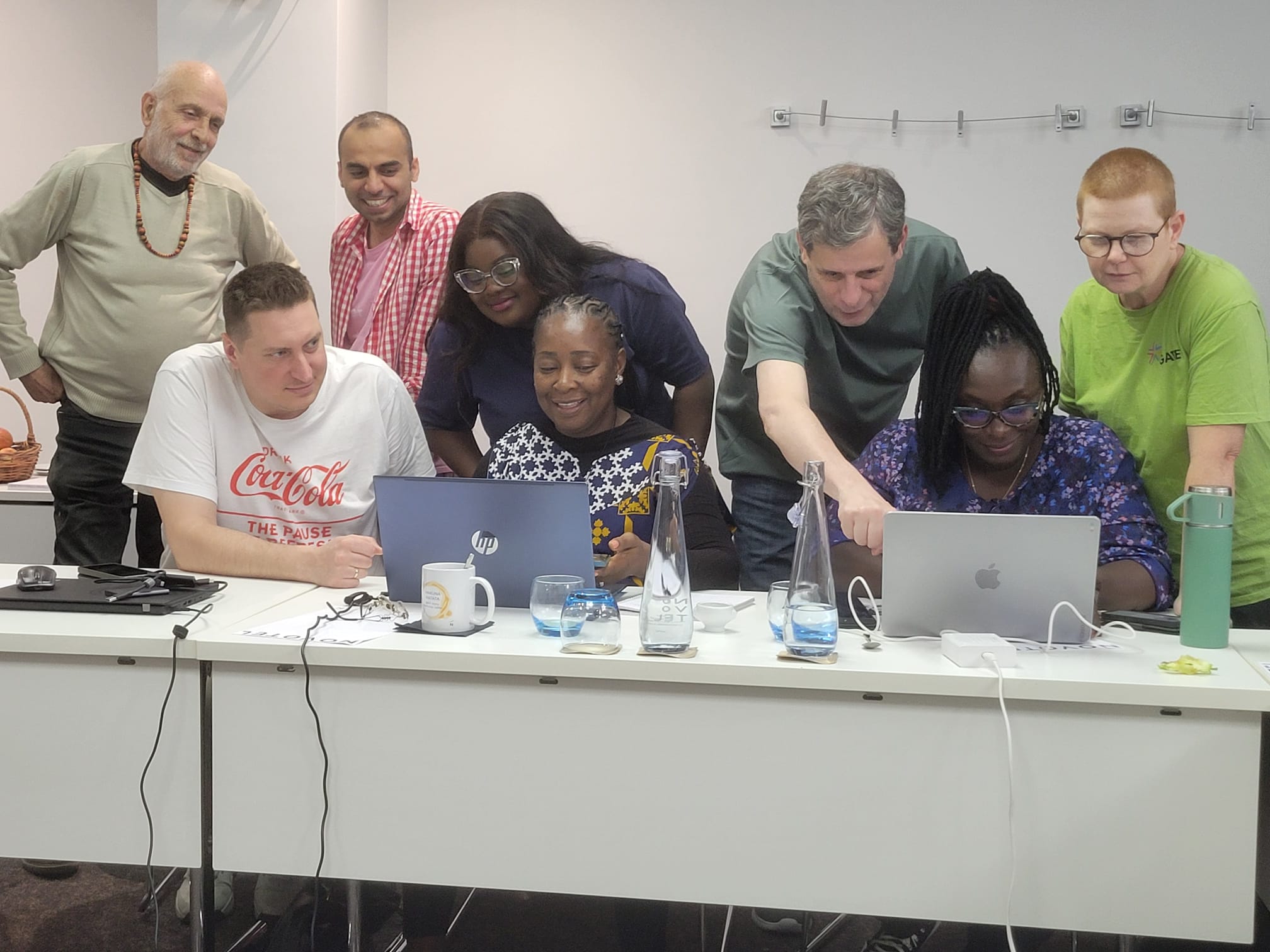
Communities Delegation Meets ahead of 53rd Global Fund Board Meeting
Held in Geneva I participated in the Communities Delegation preparation meeting as member of the delegation ahead of the 53rd global fund board meeting. The importance of meeting is significance after the pull out of US from major global entities they were funding. This brings the The Global Fund for HIV TB and Malaria programs…
-

Global AIDS Strategy and Digital Health innovations Including Artificial Intelligence : An Interview with UNAIDS Consultant
Digital technology is in many ways a new frontier that is increasingly part of our everyday lives making the perspectives, experiences and lessons learned from key population communities and civil society even more crucial to ground and inform this report. As a leading expert at the global, regional and national level, I was invited by…
-
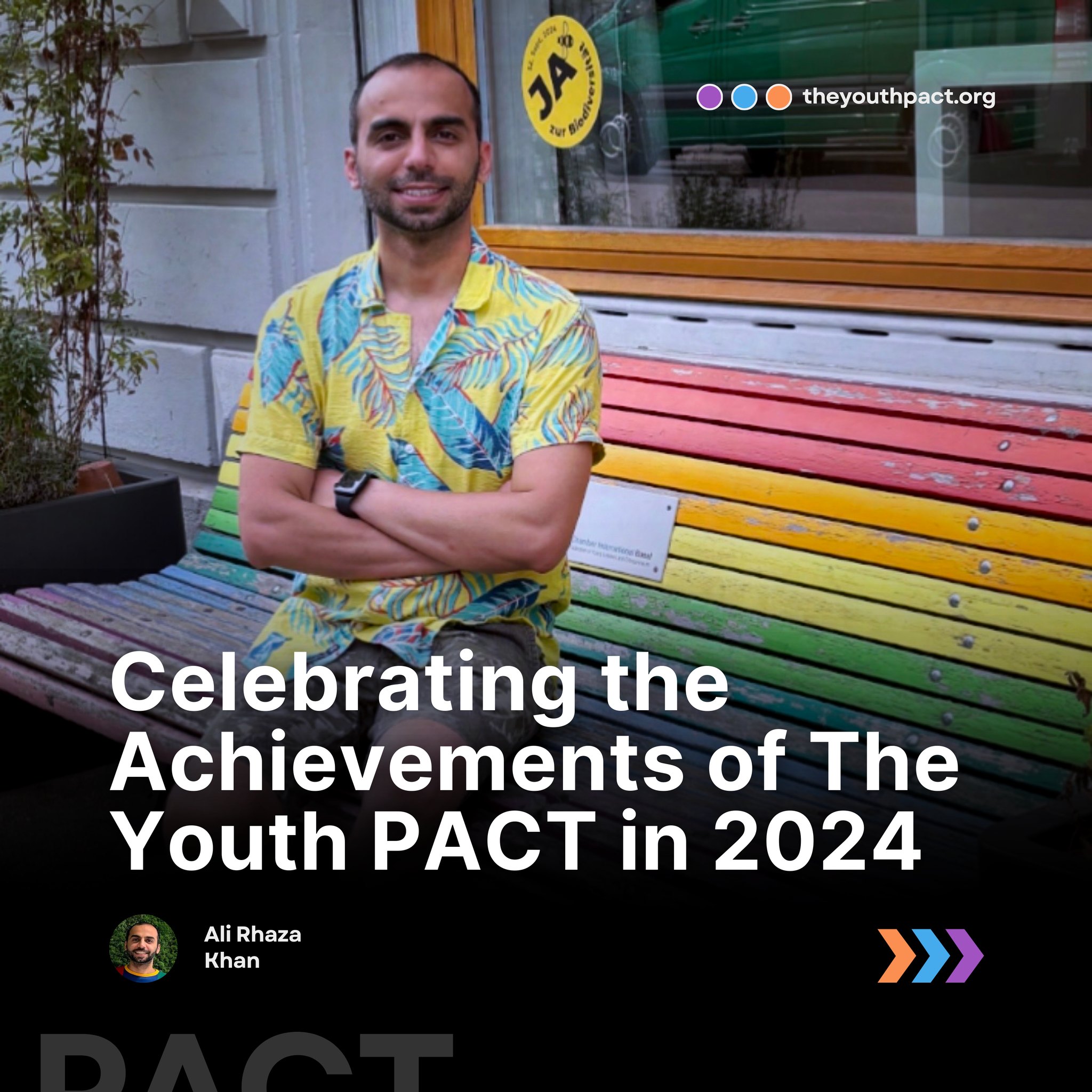
Celebrating the Achievements of The Youth PACT in 2024
In 2024, the Youth PACT Partnership did a lot of Impactful work led by young people. In this article, we share some of the essential highlights of the year 2024. Empowering Youth Through the UPROOT Scorecard Program In 2024, The Youth PACT Partnership successfully implemented the UPROOT Scorecard Program in over six countries in collaboration…
-
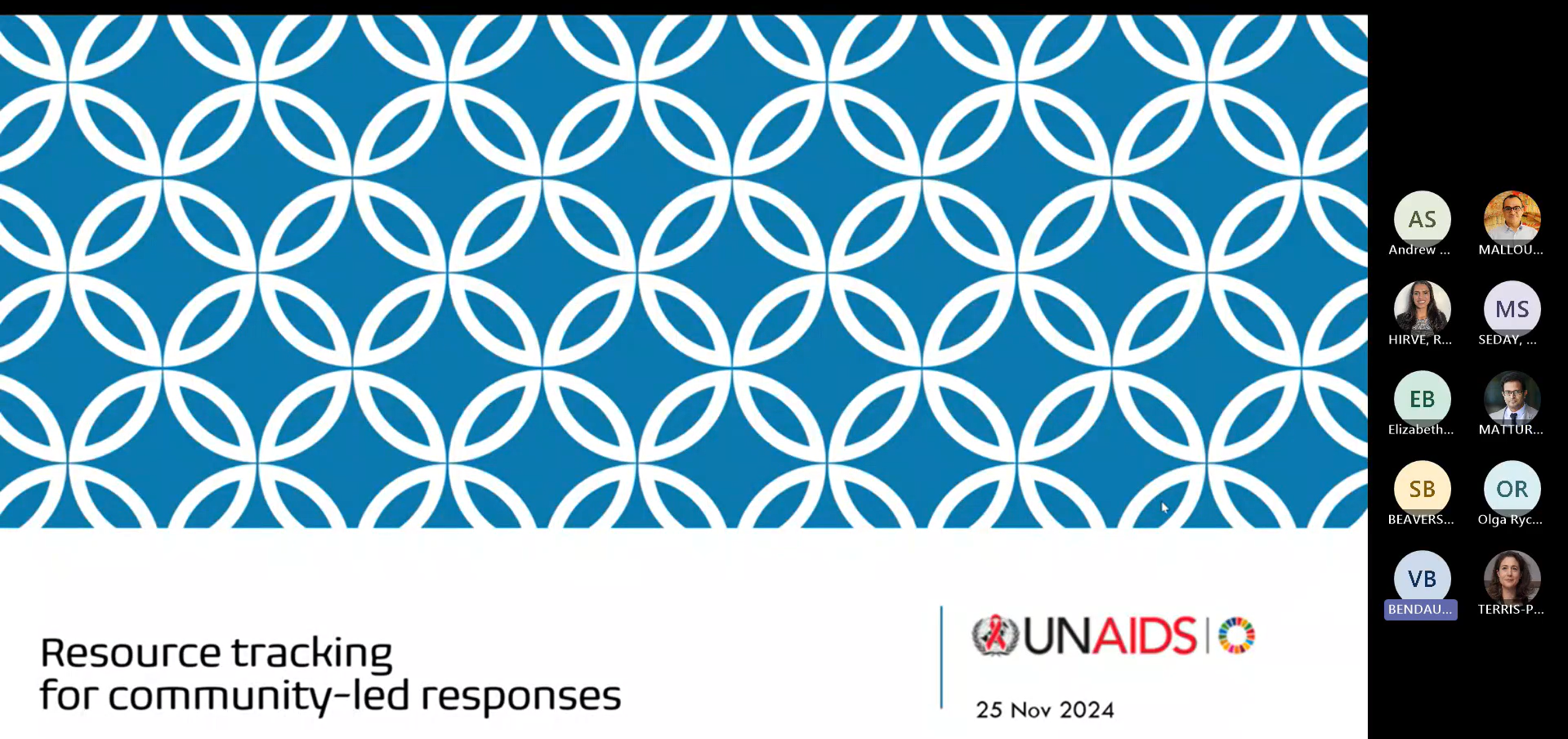
Ali Raza Khan Member UNAIDS Advisory Group on Monitoring the 30-80-60 Participated in Financial Data meeting
Exploring Financial Data as a Proxy for Monitoring Community-Led HIV Response This discussion focuses on the use of financial data to monitor the effectiveness of community-led HIV response efforts, specifically in relation to the 30-18-60 targets. The conversation builds upon a previous discussion in March, where Deepak presented initial findings on using financing data for…
-
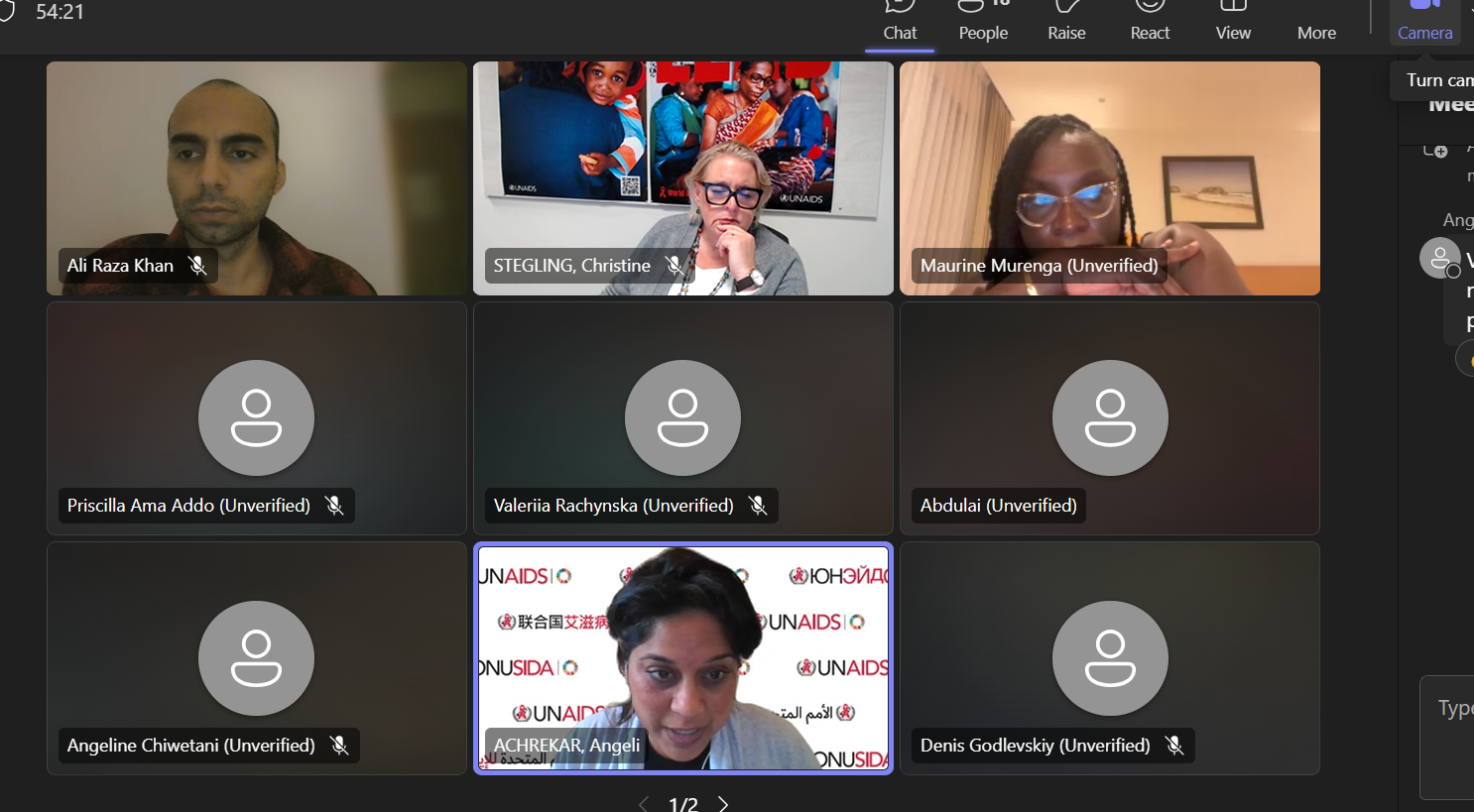
A Crucial Meeting with UNAIDS: Advocating for Sustained HIV Funding
Hello everyone, Ali Raza Khan here. As an HIV-positive gay activist and the founder of Pride Pakistan, I am dedicated to advocating for the rights and well-being of individuals living with HIV. Today, I had the privilege of meeting with key members of the UNAIDS team, including Angeli Achrekar, Deputy Executive Director for the Programme,…
-

Empowering Communities: Understanding the UNAIDS 30-60-80 Targets in the Fight Against HIV/AIDS
The fight against HIV/AIDS has seen tremendous progress in recent years. However, achieving the ambitious goal of ending the AIDS epidemic by 2030 requires innovative strategies and a focus on empowering the communities most affected by the virus. This is where the UNAIDS 30-60-80 targets come into play. What are the UNAIDS 30-60-80 Targets? The…
-

Ali Raza Khan’s Role in the IAS Regional Members’ Meeting: A Voice for Change
As an HIV-positive gay activist from Pakistan, my participation in the International AIDS Society (IAS) Regional Members’ Meeting is more than just a personal commitment. It represents the collective voice of marginalized communities striving for better healthcare and inclusivity. Being a proud member of the IAS since 2019, I have been actively engaged in its…
-
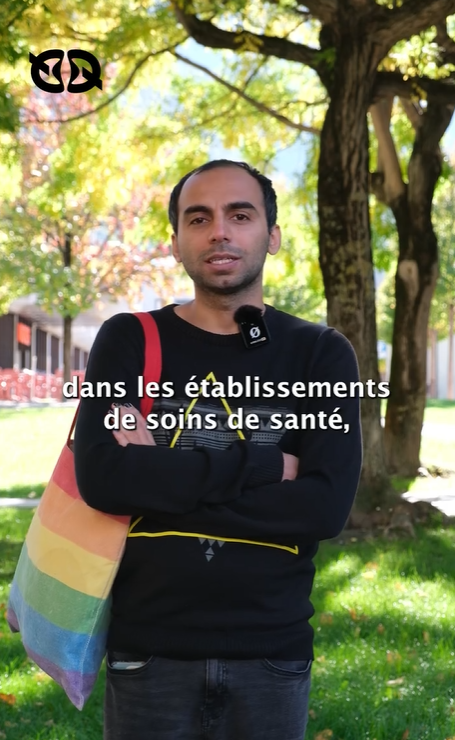
Ali Raza Khan s’exprime : il défend les droits des LGBTQ+ au Pakistan
Dans une récente interview avec Qlub Queer, Ali Raza Khan, un activiste gay séropositif du Pakistan, a partagé son histoire poignante de lutte pour l’égalité et la décriminalisation des personnes LGBTQ+ dans un pays où les relations homosexuelles sont criminalisées. « Bonjour, je m’appelle Ali Raza Khan et je suis un activiste gay séropositif du…
-
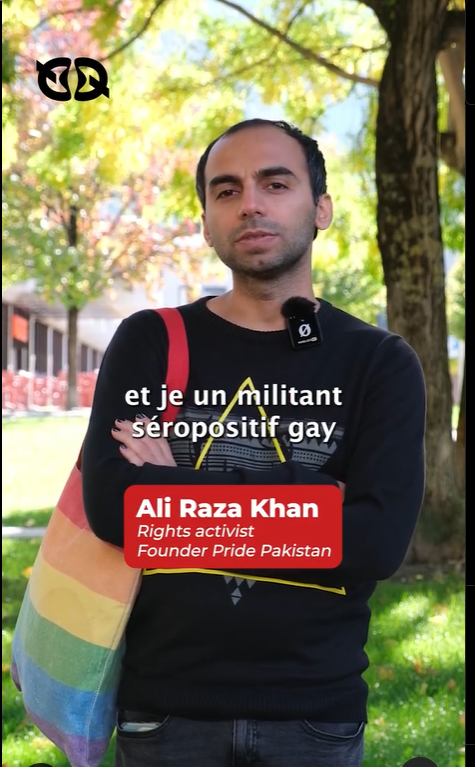
Ali Raza Khan Speaks Out: Advocating for LGBTQ+ Rights in Pakistan
In a recent interview with Qlub Queer, Ali Raza Khan, a HIV-positive gay activist from Pakistan, shared his powerful story of fighting for equality and the decriminalization of LGBTQ+ people in a country where same-sex relationships are criminalized. ” Hi, my name is Ali Raza Khan and I am a HIV positive gay activist from…
-

Decoding Food Labels: Ali Raza Khan at the World Food Forum 2024 Asia and the Pacific Regional Assembly Workshop
Ali Raza Khan, a young HIV positive food expert and minorities rights activist from Pakistan, virtually participated in the Asia and the Pacific Regional Assembly Workshop during the World Food Forum 2024. The session, YA06, held on October 16, 2024 at Ethiopia Room at FAO headquarter, was an enlightening discussion on the importance of food…
-

Breaking Barriers: An Inclusive Approach to HIV Advocacy and Community Leadership
In the dynamic sphere of global health and human rights, fostering inclusive and comprehensive approaches is paramount. During the last week of October 2024, I had the distinct honor of participating in an online consultation held on 2nd October 2024, orchestrated by the Love Alliance Partnership in collaboration with STOPAIDS, WACI Health, and the Global…
-
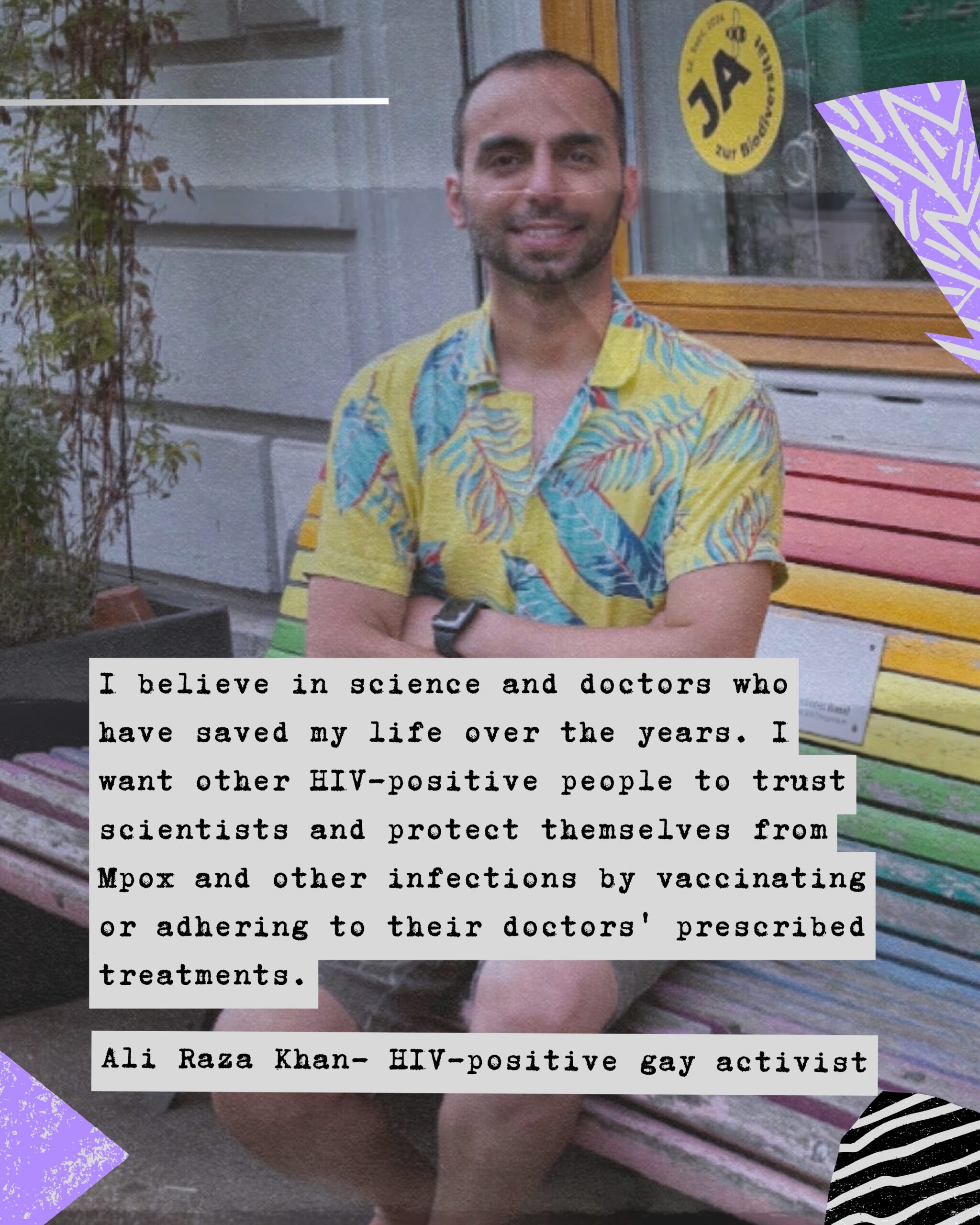
Mpox Vaccination for People Living with HIV: My Personal Experience
Mpox, a viral illness similar to smallpox, has been declared a global health emergency by the World Health Organization (WHO). For people living with HIV, understanding the risks and benefits of Mpox vaccination is vital. As an HIV-positive gay activist from Pakistan, I want to share my personal experience and insights on the importance of…
-
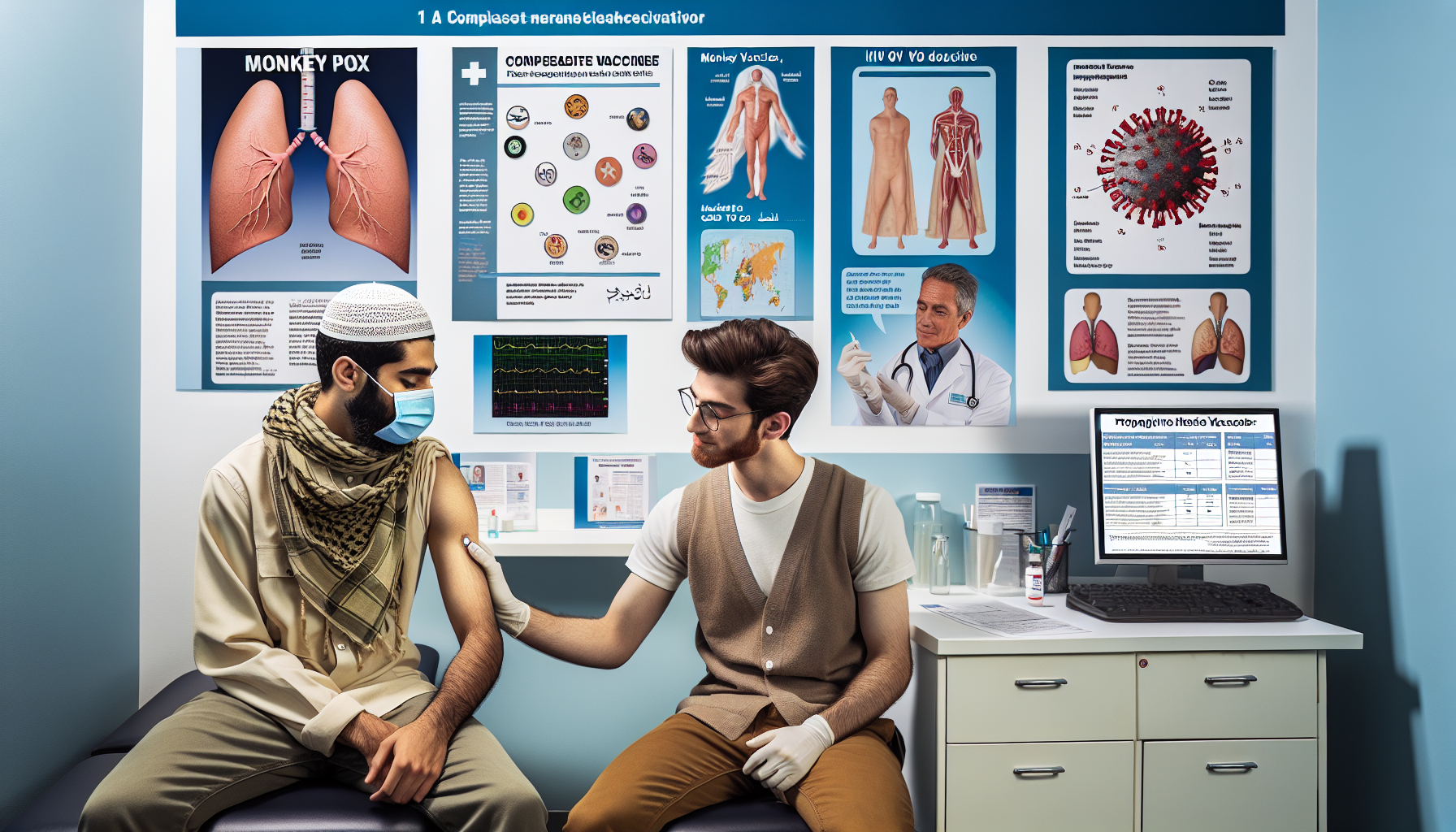
Monkeypox Vaccination for People Living with HIV: Ali Raza Khan Personal Experience and Guidelines for Community
Monkeypox, a viral illness similar to smallpox, has been declared a global health emergency by the World Health Organization (WHO). For people living with HIV, understanding the risks and benefits of monkeypox vaccination is crucial. As an HIV-positive gay activist from Pakistan, Ali Raza Khan wants to share personal experience and insights on the importance…


